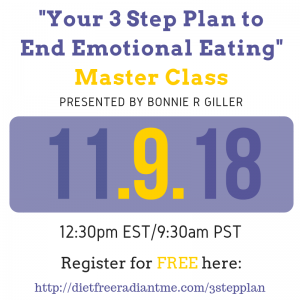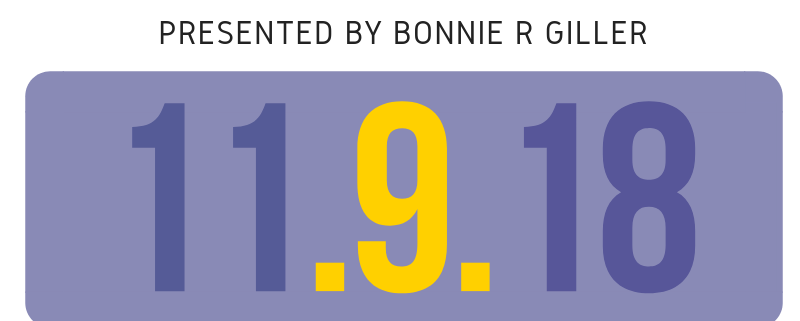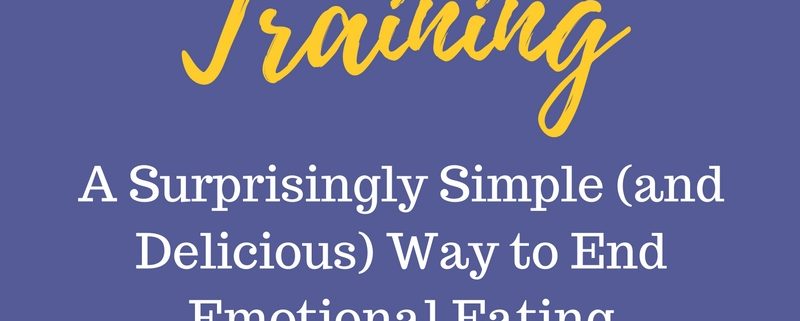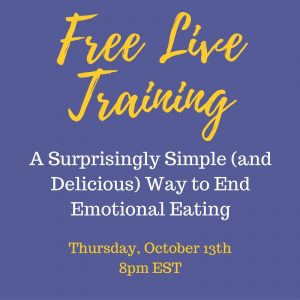Using Food as Fuel, Not Therapy
 There is nothing wrong with foods being a source of pleasure. In fact, the more positive your relationship with food, the better you will feel about your eating habits.
There is nothing wrong with foods being a source of pleasure. In fact, the more positive your relationship with food, the better you will feel about your eating habits.
But, there is a fine line between a positive food relationship and using food as comfort.
The notion of seeking “comfort” from certain foods can lead to problems with your relationship with food. If you are eating something to gain a sense of comfort, this begins to connect your eating to emotions instead of satiety.
There is a difference between eating a food you love because you are enjoying the taste of it or the ceremony for which the food represents, and eating to soothe emotions.
If you eat to feed your emotions, then you may be an emotional eater.
Let’s take a look at the cycle of emotional eating.
Emotional Eating Cycle
Your emotional trigger might be stress or even loneliness, which can lead to overeating and bingeing. You might be looking for “something” to fill a void that you seem to have in your life. That food may give you relief in the moment, but shame, guilt and body bashing can quickly follow.
This can become a vicious cycle, leaving you with a poor body image, negative self-image and those same emotions you started with.
When you eat for comfort, you are likely looking to avoid feeling whatever feelings you are experiencing. Because let’s face it, feeling feelings is hard! You hope that food will solve whatever problem you are having, but you know what? Food will not solve the problem. Once you stop eating, the root of your problems will still be there. And on top of that, you likely feel bloated, tired and physically uncomfortable.
The best way to deal with your emotions is to look at the root of the problem, instead of turning to food.
Food as Fuel, Not Therapy
It’s best to use food as fuel rather than therapy. This is not to say you can’t eat the foods you previously considered to be “comfort foods”. Instead, simply redefine their place in your eating plan, and make them a part of your healthy lifestyle, not a part of your mental well-being.
Would you like to delve further into your emotional eating and learn how to use food as fuel and not therapy?
Join me on Friday November 9th at 12:00 pm EST for a LIVE Master Class where I will coach you through your biggest emotional eating challenges.
Your 3 Step Plan to End Emotional Eating
Join me. Register for free HERE.







